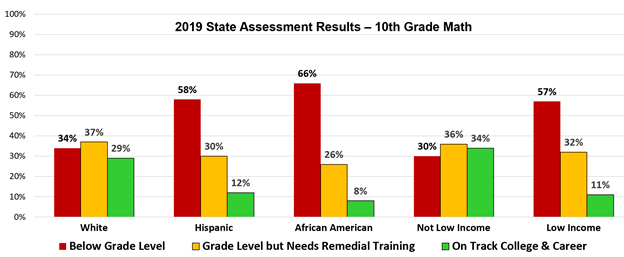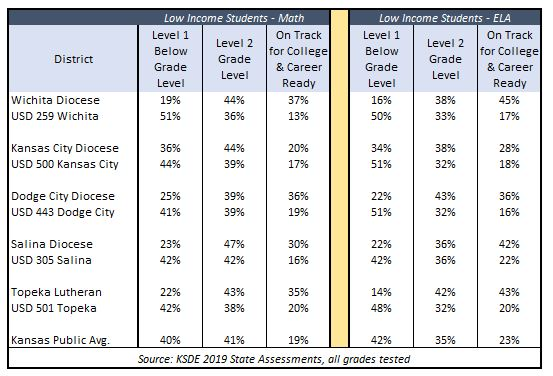The USD 231 Gardner Edgerton school district is helping the Kansas Association of School Boards distribute misleading information in opposition to education savings accounts for students who are financially or academically at-risk. Gardner Edgerton Pam Stranathan shared the KASB talking points in her February 10 update to board members and says the district will send “similar talking points to all employees.”
The Sentinel submitted an Open Records request to obtain copies of all communication to employees and parents on the subject but the district didn’t respond by press time.
KASB is the taxpayer-funded lobbying arm of local school boards. Along with school administrators and school unions, they oppose money-follow-the-child programs like ESAs and tax credit scholarships because their focus is primarily on money, not improving student achievement, as demonstrated in their objections to the programs.
KASB’s chief lobbyist, Mark Tallman, recently told the Kansas City Star, “The biggest concern is that we move away from the idea of equal education opportunity for all in our public system.” Local school boards’ idea of ‘equal opportunity’ is to have all students stuck in the same low-performing schools, with no accountability or incentive to improve achievement. They say it isn’t fair to public schools that private schools aren’t burdened with the same regulations and constraints; but instead of asking to be freed of ineffective regulations, they want low-income kids trapped in the public system.
The education lobby ‘talking points’ carefully avoid the subject of low achievement in public schools, which is the driving reason for money-follow-the-child programs. Low-income 10th-graders are twice as likely as their more affluent peers to be below grade level in math (57% vs. 30%). Only 11% of those low-income kids are on track for college and career, compared to 34% for other students.

In Giving Kids a Fighting Chance, former Florida Governor Jeb Bush says poor student achievement for low-income kids “is the social justice issue of our time. It’s the civil rights issue of our time, and it’s the economic issue of our time.”
But for KASB, the Gardner Edgerton school board, and many others, it’s just about money – as reflected in their ‘talking points.’
They say money-follow-the-child programs take funds away from public schools, but public schools still get the same per-pupil funding regardless of whether any students leave (estimated to be a little over $16,000 this year). They complain that their costs don’t decline much if a few students leave, but by that logic, costs don’t increase much if they get a few new students…yet they demand full funding for every new student.
KASB and USD 231 (falsely) say, “there is little evidence that students in private schools outperform public schools’ students.” The most recent state assessment results show low-income kids in parochial schools have much better performance than their peers in public schools.
The table below shows the stark differences between the parochial and public schools on the Kansas state assessments in Wichita, Kansas City, Dodge City, Salina, and Topeka. Students of each diocese (plus Topeka Lutheran) not only score much higher than their public-school counterparts, but each group also exceeds the state averages in both math and English language arts (ELA).
In every case, public schools have much larger percentages of kids below grade level and much smaller percentages of kids on track for college and career.

Completely ignoring federal anti-discrimination laws that apply to public and private schools, they accuse private schools of discrimination.
In yet another (false) money-focused complaint, public school boards and administrators say it’s unreasonable for the legislature to divert taxpayer money to help kids have a better opportunity. The truth is that taxpayers save money with these programs because only a portion of per-student funding follows them.
By the way, Governor Kelly’s budget proposal would increase school funding next year by about $250 million.
Joy Eakins, a former Wichita School District Board member, testified in favor of the ESA bill. She explained why she now supports money-follow-the-child programs.
“In 2013, I staunchly opposed measures like this bill,” Joy Eakins, a former Wichita School District board member told the committee on Monday. “I believed we could bring change from the inside and fix these issues for our most vulnerable students. But now I’m here today asking you to pass this bill because I got a good look at the inside of the system.”
The Sentinel would like to hear from other current and former school board members who share Joy Eakins’ view. Email us at news@SentinelKSMO.org




